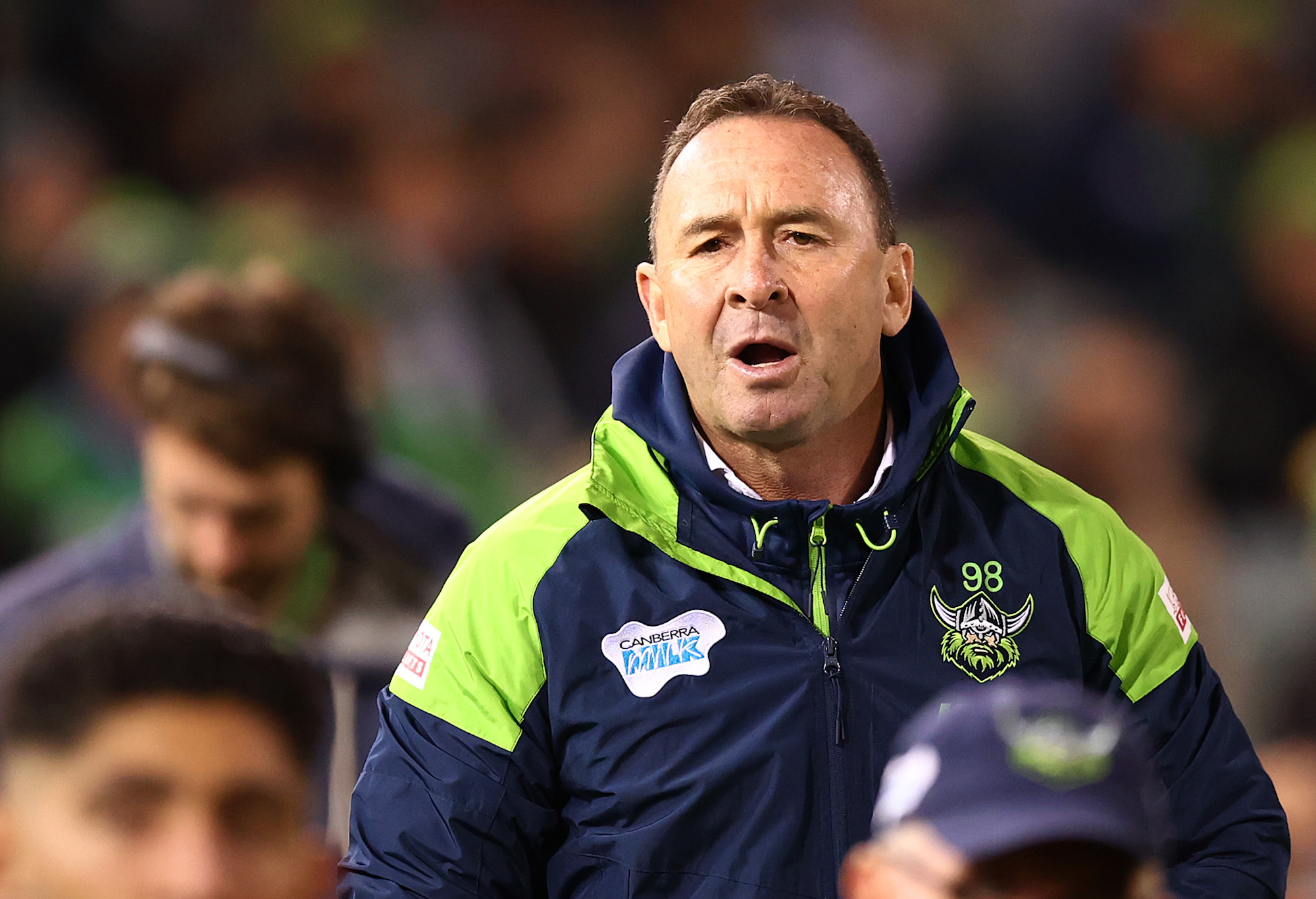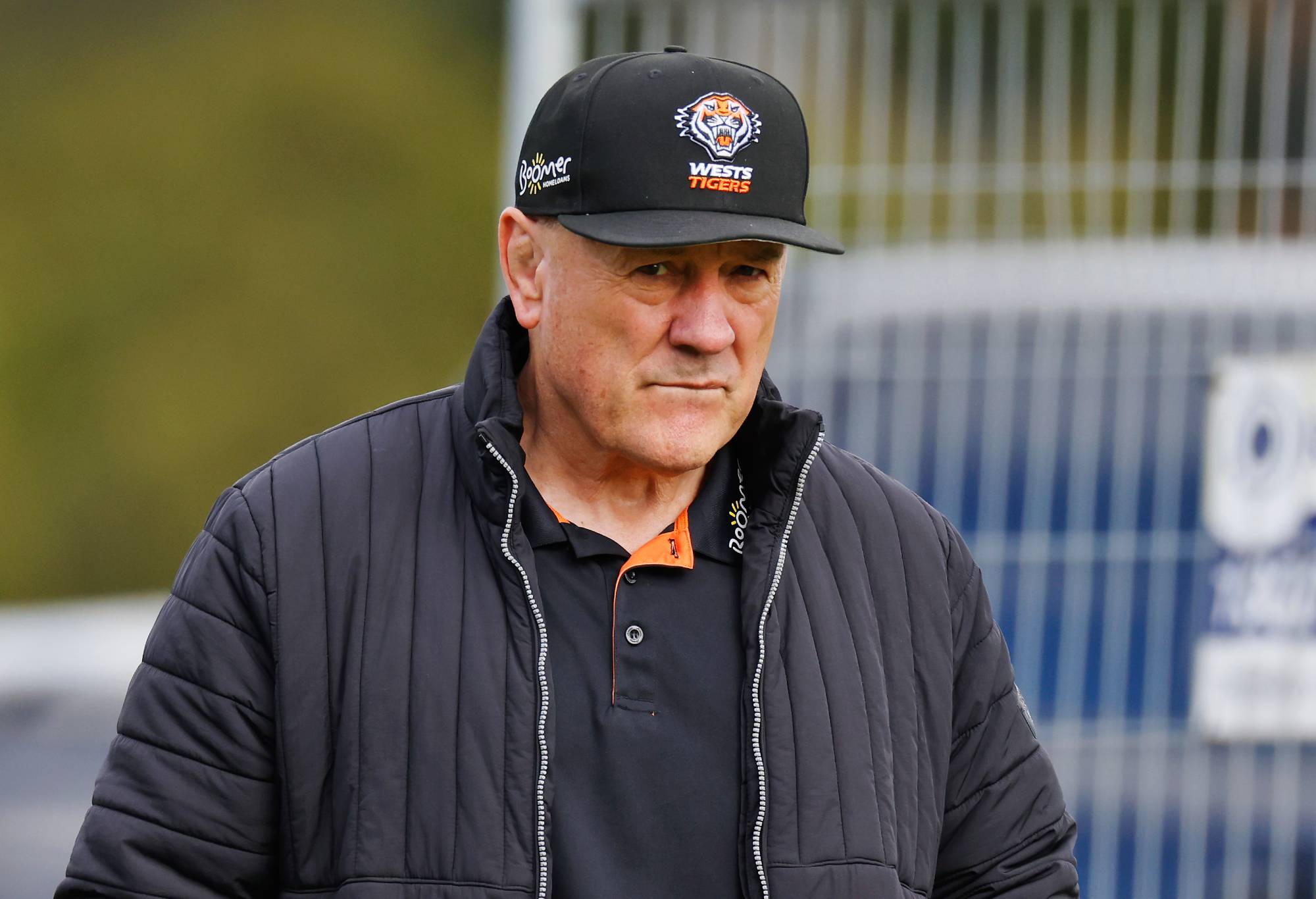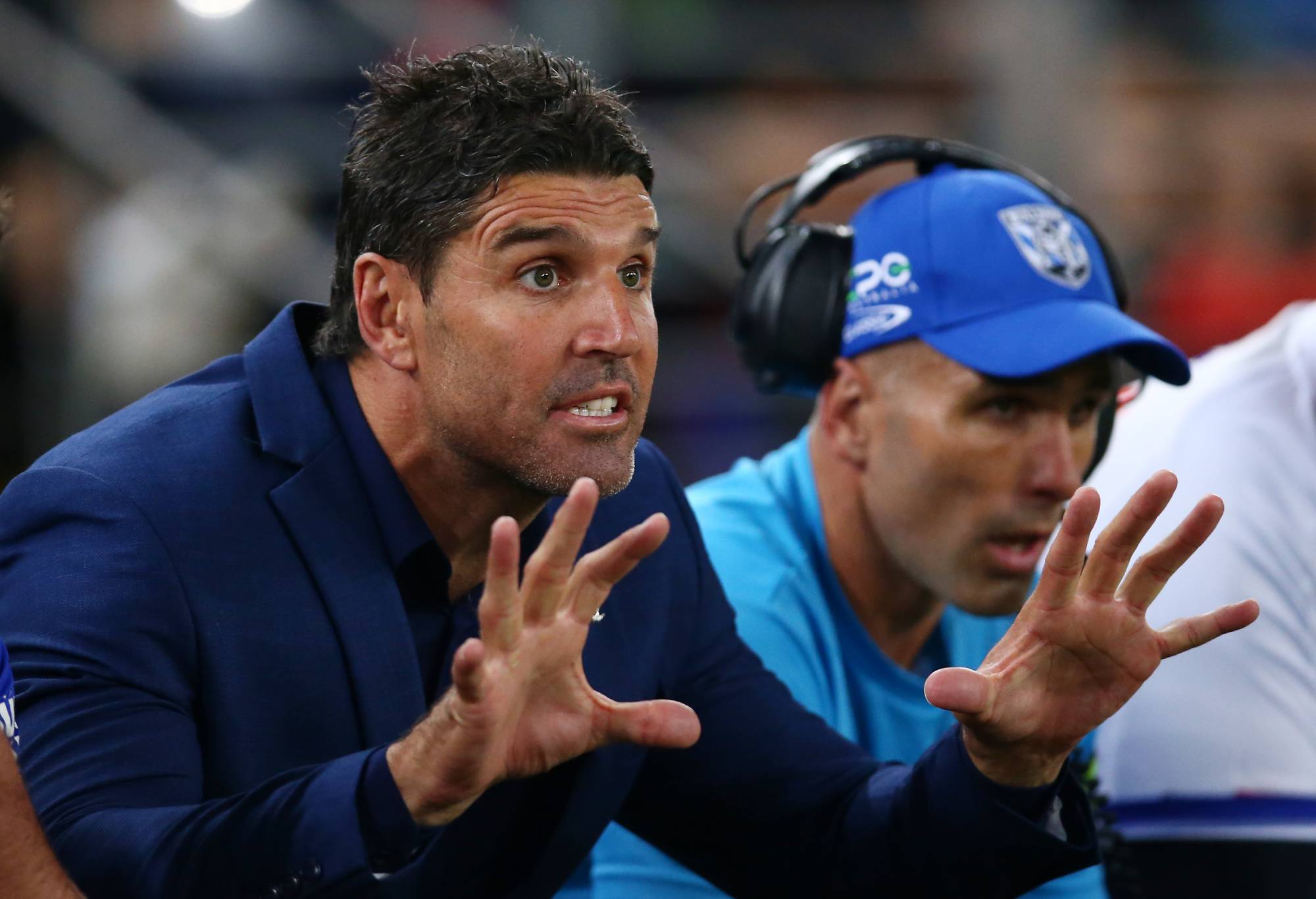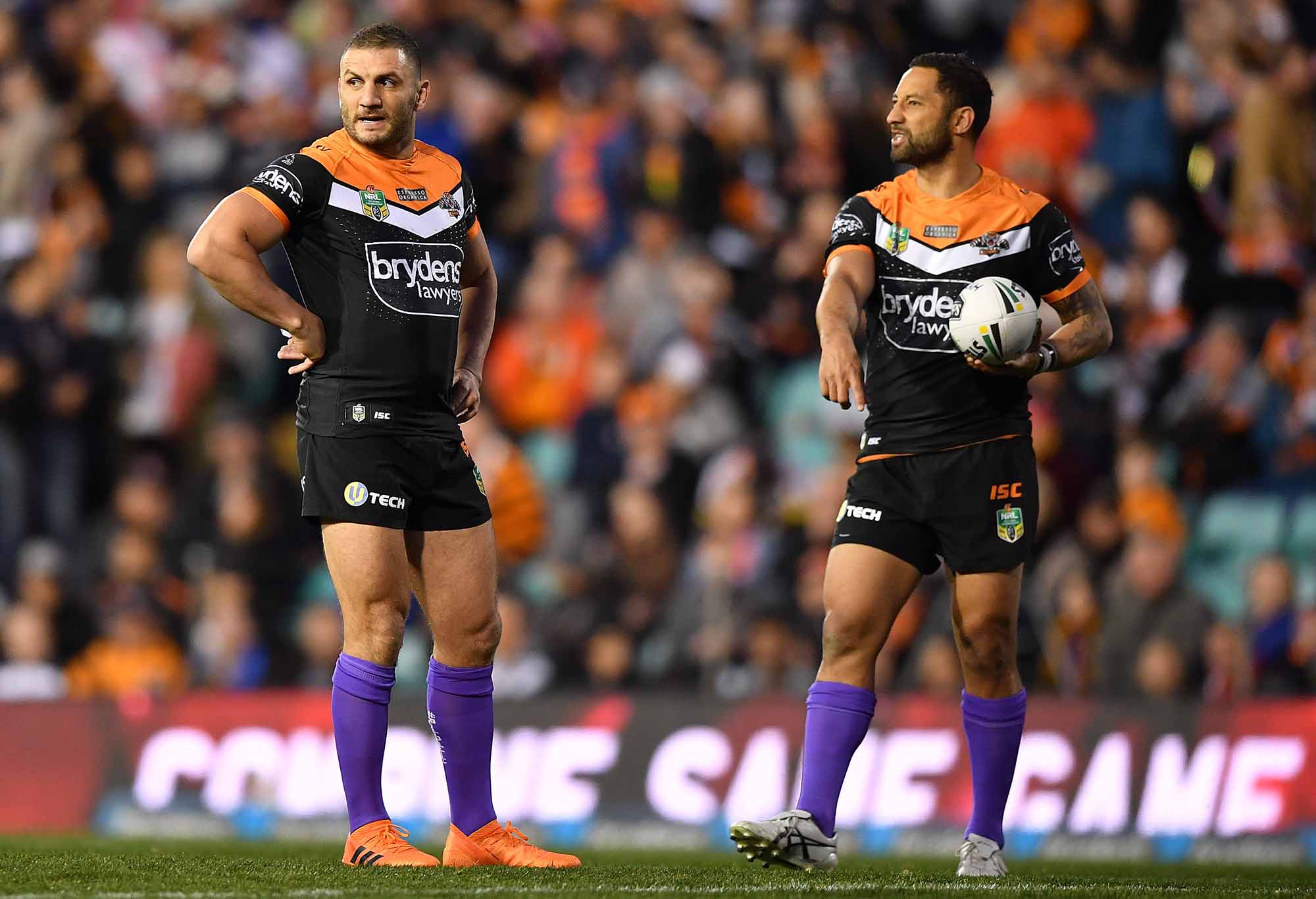In 1991, Glenn Hoddle, one of the most gifted midfielders of his generation, left Arsene Wenger’s Monaco at the top of the French league to join lowly Swindon Town, then in the third tier of English football, to become their player-manager.
On the training field, he would show his players what he wanted them to do in detail, pinging shots into the top corner and trapping balls dead with his first touch.
A TV documentary captured the scenes as Hoddle, a master technician and supreme talent, attempted to coach massively inferior players while they ballooned shots over the bar.
I use this analogy as a cautionary tale for Benji Marshall, announced as a new assistant at the Wests Tigers for next year and set to take over as head coach in 2025.
Marshall was a transcendent footballer, perhaps the most naturally gifted of his generation, but those talents made make him uniquely unqualified to coach a team like the Tigers, who have consistently been the worst organisation in the NRL for a decade now.
There’s basically a straight line correlation between great players and coaching. Simply put, the better the player, the less likely they are to be a good NRL coach.
In fact, sports psychologists generally agree on this: cognitive scientist Sian Bellock has written extensively on how the best players are often the worst communicators because they struggle to explain why they were so good.
That isn’t to say that it isn’t possible that Marshall will coach well, but that history would suggest that he is up against it, and not just because he’s coaching the Wests Tigers.
Almost all successful coaches were at some point players at a decent level, with only Brad Arthur and Adam O’Brien in the current NRL coaching cohort not to have played at a high level, whether that was NRL, NSWRL, QRL or Super League.
The difference comes when exceptional players become coaches: they rarely make the grade.
Of the 16 currently in post, only Craig Fitzgibbon, Des Hasler, Ricky Stuart, Kevin Walters and Canterbury caretaker Mick Potter played Origin level, with Warriors interim appointee Stacey Jones having also made rep for New Zealand.
That’s less than 40% of coaches having been above-average players, or if you prefer, more than 60% having not been.
Of those, only Stuart and Hasler have won premierships as coaches, while conversely, only one coach won a title in the past decade who was an Origin player: Paul Green with the Cowboys in 2015.
Of truly elite players – guys who won Dally M Medals – only Stuart has gone on to win a comp as a coach, and that was 20 years ago.
For every Bob Fulton and Wayne Bennett, there’s one could suggest Mick Cronin, Wally Lewis, Johnny Raper, Garry Schofield, Tommy Bishop, Terry Lamb, Wayne Pearce and plenty more as top-line players who struggled as coaches.

(Photo by Mark Nolan/Getty Images)
As the game becomes more complex, elite playing experience matters less and less. Trent Robinson, Craig Bellamy and Ivan Cleary, are far more remarkable as coaches than they ever were as players.
This has already happened in soccer, of course, which tends to be a few steps ahead in coaching.
Guys like Jürgen Klopp, Christophe Galtier and Erik ten Hag were bang average players while Jose Mourinho, Marcelo Bielsa and Thomas Tuchel all retired as players without achieving anything at all.
Those that were both elite players and coaches – one thinks of Carlo Ancelotti and Zinedine Zidane at Real Madrid – managed to win because they were good at communicating with other people who were also elite, much like an Origin coach might in rugby league.
Sometimes you get a genius like Pep Guardiola, who was both a high-level player and an elite tactician, but they are very, very rare.
This might be seen as the Trent Barrett principal because he perhaps presents the best guideline for what Marshall might face.
Multiple people with knowledge of his career have told me that the principal difference between Trent Barrett’s career at Penrith and his time at the Bulldogs that he was superb at coaching elite players, because he could speak to them at a level that they were both comfortable with.

Tim Sheens. (Photo by Mark Evans/Getty Images)
He was great with Nathan Cleary, but the problem came when he had to transfer this to non-elite players – first graders, sure, but not the cream of the crop – because his advice often went way over their heads.
Like in the Hoddle analogy at the top, the ability to turn good players into great ones, or bad players into good ones, is the biggest challenge of all.
Doing that requires three parts to come together, and this is the issue that Marshall will face.
There’s coaching, of course, the nuts and bolts of player development, though I would contend that this is the least important in the NRL because all the players that make it as far as first grade already have skills and knowledge.
Then there’s systems, which is where the biggest difference is to be found. Rugby league is a weak link sport where it doesn’t matter who your best player is because the other team can just run at your worst.

(Photo by Jason McCawley/Getty Images)
You need to have an overarching plan that accentuates strengths and hides weaknesses, which, frankly, is not and has never been the sort of thing that elite players have to think about while they are playing because they’re already good.
The third is the motivational stuff, getting players to perform to the best of their abilities on the day. This is perhaps where Marshall might be able to do something, because – if his TV work is anything to go off – he is a good communicator.
The apprenticeship under Tim Sheens might be the way to go, though that is hard to predict. Sheens hasn’t coached in the NRL for a decade and was largely unsuccessful in England, where he ended up in the lower divisions with Widnes.
Sheens, though a great coach in his day, has yet to show any adaptability to the modern game, and a new set up that includes him and two rookies has to raise eyebrows.
This really is the nub of it. The Benji Marshall name might attract players, but getting good players is only the start of the game. Lots of good players have played for the Wests Tigers in the last decade and they’ve still been rubbish.

Robbie Farah (left) and Benji Marshall. (AAP Image/Joel Carrett)
To return to the Hoddle analogy, he did eventually take Swindon Town to the Premier League, and then impressed as a manager with Chelsea and England, with his coaching abilities improving as the players he was talking to got better. It turned out that in the end, he was a decent coach after all.
If Sheens can patch a roster, turn some bad salary cap around and set Marshall up for success, it’s certainly possible that by the time he takes over in 2025, the Tigers will be a functioning organisation that will be responsive to the voice that they are hearing.
However, it’s just as possible that they will continue to flap, continue to prevaricate about their own identity and continue to pull in opposite directions.
History would tell us that great players need to be set up to succeed to stand a chance, because without that, the communication gap is often too large. Wests Tigers get two years to do that. They’ll need it.
































































































